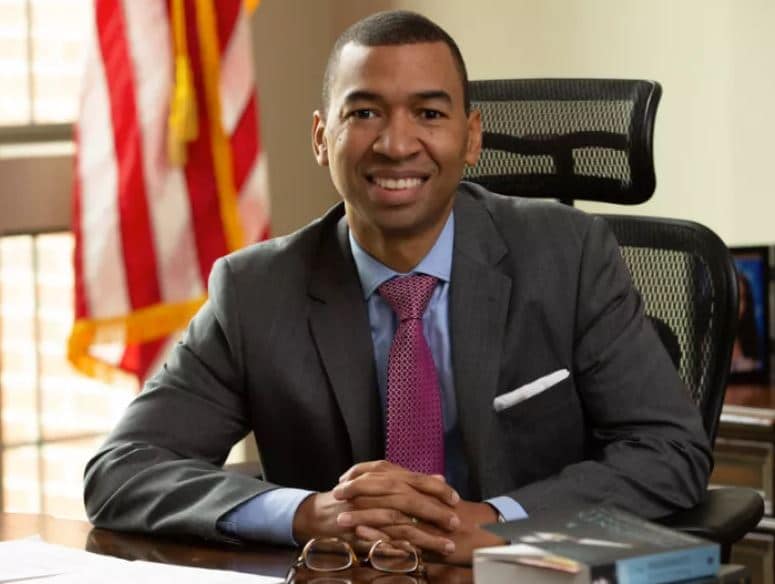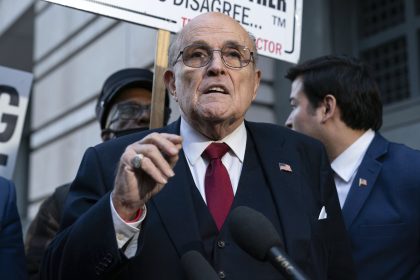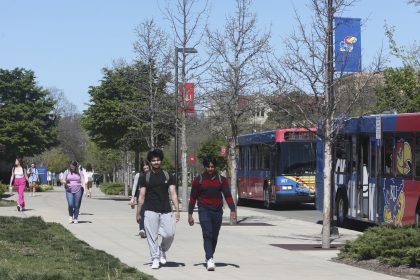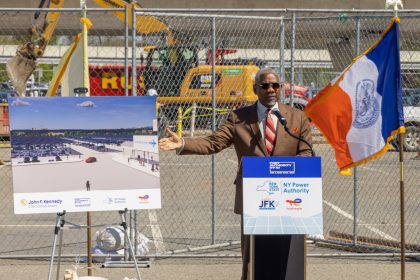Montgomery Has Civil Rights Struggles ‘In its DNA,’ Says Mayor

When Steven Reed was elected the first Black mayor of Montgomery, Ala., he came with an ambitious plan to develop the city and to move towards equity.
He viewed his election as a mandate for equity that could outline a new vision not just for the city. Reed came to office through a coalition including groups like the Equal Justice Initiative, which he says has opened up the possibilities in Montgomery and across the South for the prospect of racial reconciliation.
“We need to do a better job of supporting minority, and particularly Black-owned, businesses, and helping entrepreneurs get access to capital,” Reed said during a conversation about his vision for Montgomery on Thursday.
The city’s challenge is to address education, economic outcomes, and health care access, Reed said. The steps they’ve taken to do this include, for instance, a tax increase for Montgomery’s public schools in November, the first time in fifty years that has happened, he said. They have also tried to expand access to health care and to increase financial literacy. His office believes it is important to target contracting and procurement opportunities to minority-owned businesses, he said.
This will ultimately entail changing the main economic model of Montgomery.
“We cannot just be a service and manufacturing community. We cannot be one that is just based on being the capital of the state government.”
Instead, Reed said he hopes to pivot the city towards engagement with the knowledge-based economy. Reed specifically stressed his office’s efforts to partner with willing organizations to address public safety, neighborhood revitalization, affordable housing, and food deserts, in order to “ramp out a more fair and just approach to government and how responsive we are to our citizens.”
So many of those citizens, Reed added, have felt passed over and left behind.
The event, “Setting a new agenda for American cities,” was hosted by the Brookings Institution, a prominent think tank in Washington, D.C., as part of its Metropolitan Policy Program. Reed was featured along with San Diego Mayor Todd Gloria, the first person of color to hold that position. A recording of the event is available online.
Reed, a former probate judge, came to office in November of 2019, and would be almost immediately thrown into the coronavirus pandemic, which activists and scholars have warned threatens to further exaggerate historic levels of inequality across the country.
The coronavirus put his agenda on pause, Reed admitted Thursday.
But the city’s fiscal response helped it wade through, he said. It implemented a hiring freeze and cut budgets across the board by 10%. Revenues plummeted, but they didn’t have furloughs or layoffs, and the city’s reserves went untouched. Reed described the city as prepared to enter the 2021 budget season better than they expected.
At the community level, they set up mobile WI-FI units, raised hundreds of thousands of dollars to disperse as grants to small businesses, and partnered with financial institutions and places like the Small Business Administration to provide local businesses with as much access to information as they could.
“It’s something that’s in the spirit, in the DNA,” Reed said of the city’s connection to civil rights.
In recent years, self-imposed limitations and long-standing traditions have kept the city from thriving, Reed said.
“We feel like we should be the hub of that conversation. We feel like we should be the center of how we move forward in a progressive manner, not just in the city but throughout [the South] because of what we’ve done in the past,” Reed said.























